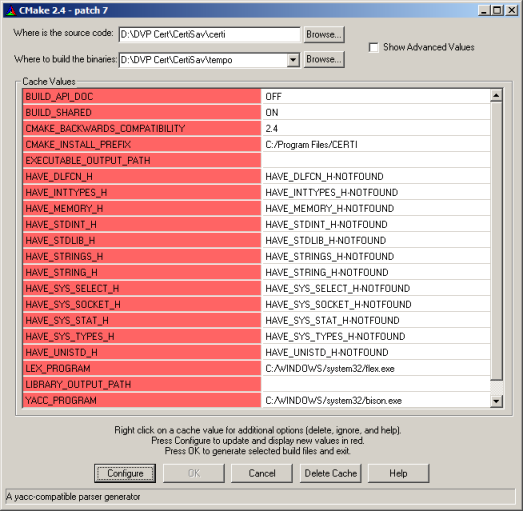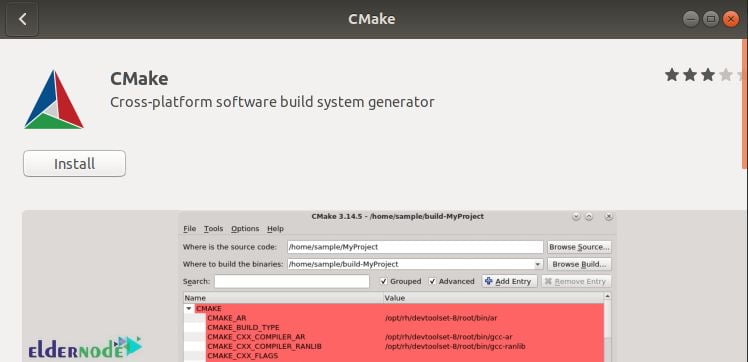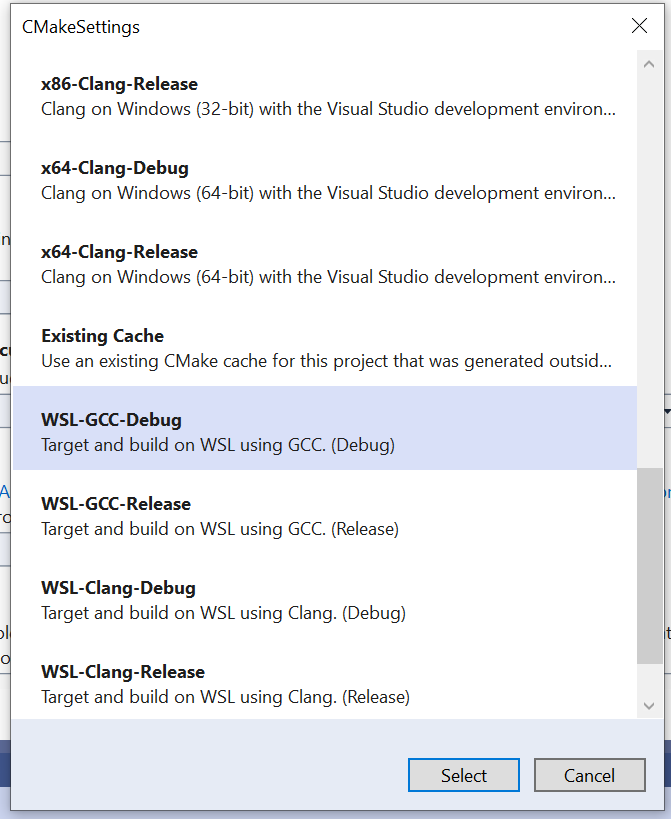

Please take a look at configuring Ubuntu Linux after installation to configure your Debian/Ubuntu Linux box for the required tools. I have tested these instructions on Debian/Ubuntu Linux distributions but they should work on all Linux machines where compilers and make utilities are installed. Here are the simple steps to download, configure, compile, and install CMake on a Linux machine. CMake is a family of tools designed to build, test and package software. This also, of course, works with pipx.CMake is a cross-platform, open-source build system. It really shines when placed in a pyproject.toml file, however - it will only be installed to build your package, and will not remain afterwords! Fantastic. This has the benefit of respecting your current virtual environment, as well.

So only use this system if binaries exist, which is most of the time. If a binary doesn't exist, it will try to use KitWare's scikit-build package to build, and will require an older copy of CMake to build. If you have pip (Python's package installer), you can do: gitbook $ pip install cmakeĪnd as long as a binary exists for your system, you'll be up-and-running almost immediately. It's now supported on special architectures, like PowerPC on Linux and Apple Silicon on macOS, and on MUSL systems like Alpine too. This is also provided as an official package, maintained by the authors of CMake at KitWare and several PyPA members, including myself. Versions less than 3.10 are marked by a deeper color of red.

If you are using GitHub Actions, also see the jwlawson/actions-setup-cmake action, which can install your selection of CMake, even in a docker action run. Mid November 2018 this image became ready for widescale use. This does not supply Universal2 wheels yet. Add -user if you have to (modern pip does this for you if needed). You should only use the default CMake on 18.04+ it's an LTS release with a pretty decent minimum version! Debian The default on 8 is not too bad, but you should not use the default on 7. Homebrew is quite a bit more popular nowadays on macOS, at least according to Google Trends. The normal installers from are common on Windows, too. WindowsĪlso Scoop is generally up to date.
CMAKE INSTALL DEBIAN 7 FREE
Feel free to install CMake yourself, it's 1-2 lines and there's nothing "special" about the built in version. Here are some common build environments and the CMake version you'll find on them. You can also build CMake on any system, it's pretty easy, but binaries are faster. If you are on a system without wget, replace wget -qO- with curl -s. Do not try it on a non-containerized system.ĭocker $ wget -qO- "" | tar -strip-components=1 -xz -C /usr/local bashrc or to an LMod system.Īnd, if you want a system install, install to /usr/local this is an excellent choice in a Docker container, for example on GitLab CI. You'll obviously want to append to the PATH every time you start a new terminal, or add it to your. If you just want a local folder with CMake only: The names changed in 3.22 older releases had names like cmake-3.19.7-Linux-x86_64.tar.gz. ~ $ wget -qO- "" | tar -strip-components=1 -xz -C ~/.local If you already use ~/.local for user-space packages, the following single line command 1 will get CMake for you 2: There are universal Linux binaries provided, but you'll need to pick an install location. Kitware provides a Debian/Ubunutu apt repository, as well as snap packages.
CMAKE INSTALL DEBIAN 7 WINDOWS
You can also get it on most other package managers, such as Chocolatey for Windows or MacPorts for macOS. It's not a bad way to get it on macOS either (and a Universal2 version is supplied supporting both Intel and Apple Silicon), but using brew install cmake is much nicer if you use Homebrew (and you should Apple even supports Homebrew such as during the Apple Silicon rollout). This is how you will probably get CMake if you are on Windows.

APT repository (Ubuntu/Debian only) (official).Pip(x) (official, often updates same-day).Quick list (more info on each method below) Feel free to instruct your users here if they complain about a CMake requirement being set too high. You can easily install a new one instead, either on the system level or the user level. If you have a built in copy of CMake, it isn't special or customized for your system. It should be newer than the libraries you are using (especially Boost). Your CMake version should be newer than your compiler.


 0 kommentar(er)
0 kommentar(er)
